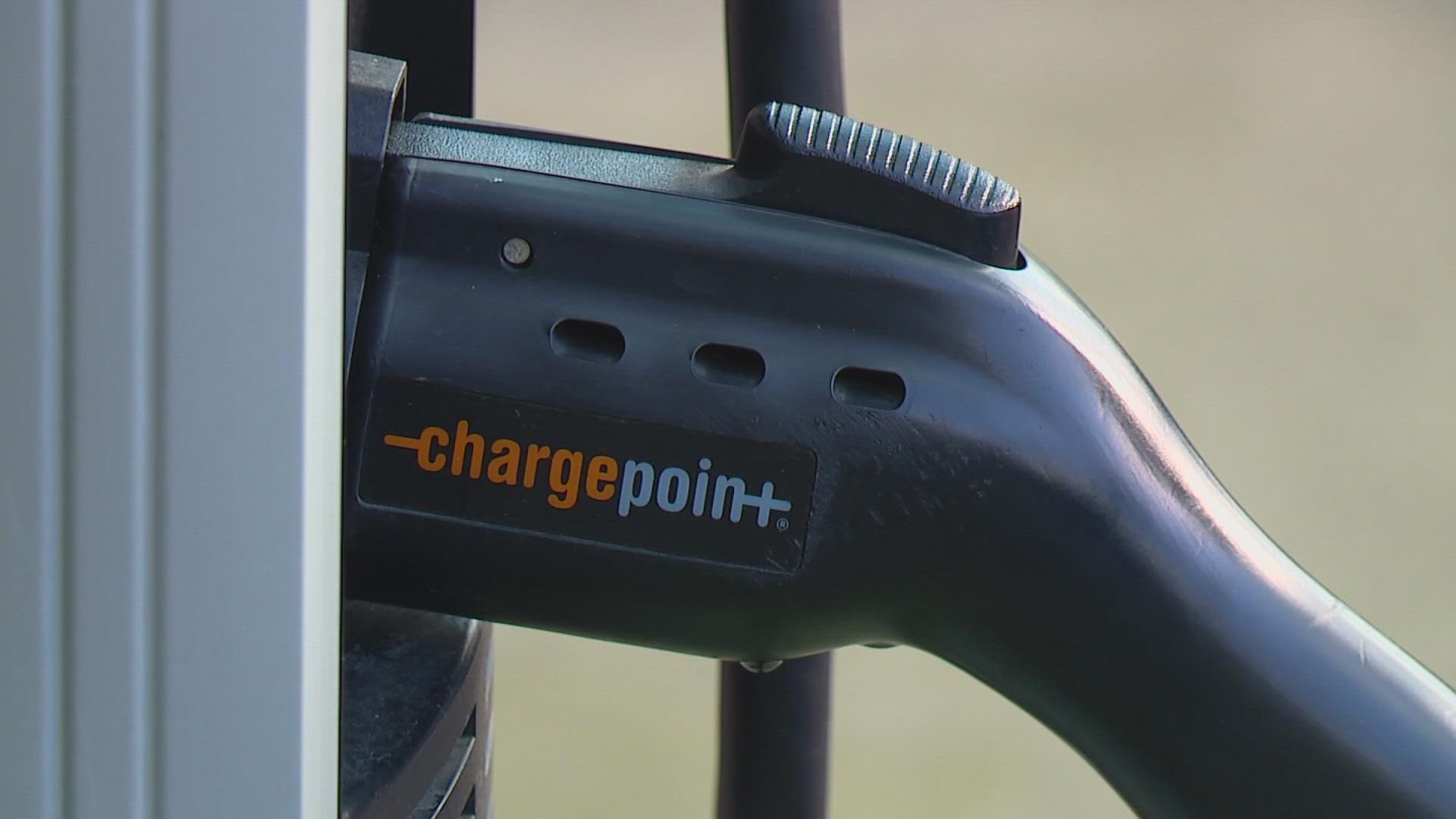SEATTLE — More electric vehicle charging stations are coming to Washington and the United States. The plan is to have a fast charging station every 50 miles along major U.S. highways.
The U.S. Government gave the final "OK" Tuesday to begin releasing $5 billion over five years to install or upgrade electrical chargers along 75,000 miles of highway.
The plans require each station to accommodate at least four vehicles and they must be accessible to users without a cellphone app or registration. The plan also requires states to prioritize the installation of fast chargers, which in some cases can charge vehicles in as little as 15 minutes.
In the program's first year, Washington will receive $10.5 million and $15 million each of the following years. The total federal investment is $71 million. The Washington State Department of Commerce said $90 million in state funding is also being invested in charging infrastructure.
"We are coordinating, figuring out where all the existing charging infrastructure is, figuring out where the gaps are and then investing in those places so that what we can do is build out a charging network so that everybody in Washington, when they leave home in their electric vehicle, knows that they're not going to run out of charge," said Joel Creswell, the climate policy manager with the Washington Department of Ecology.
The infrastructure is critical as several states, including Washington, plan to ban the sale of new gasoline cars by 2035.
The Washington Department of Transportation released its EV infrastructure deployment plan in July. The plan says the priority deployments will include completing the state’s north/south and east/ west interstates, I-5 and I-90. Secondary priorities for investments include completing the I-82/I-182 and US 395 AFCs, followed by US 101 and US 195.
Creswell said the plan is ambitious but believes it's achievable.
"These are really expensive to build. These chargers operate at 150, sometimes 300 kilowatts...Sometimes electric utilities have to run more powerlines into a building to install [EV chargers] so this is really big, expensive infrastructure but it's critical to our electric vehicle transition and it really pays off in the long term," said Creswell.

